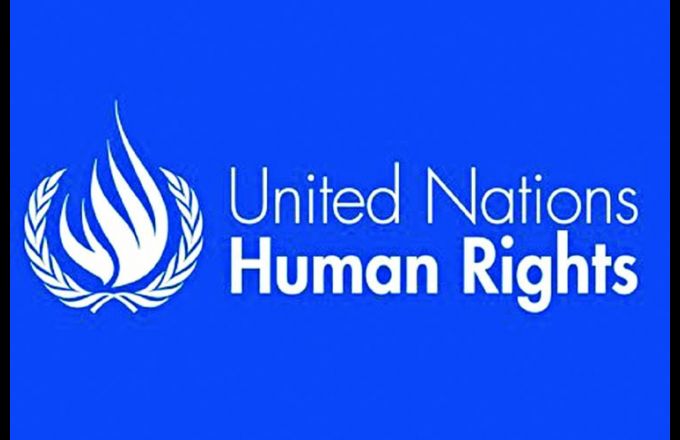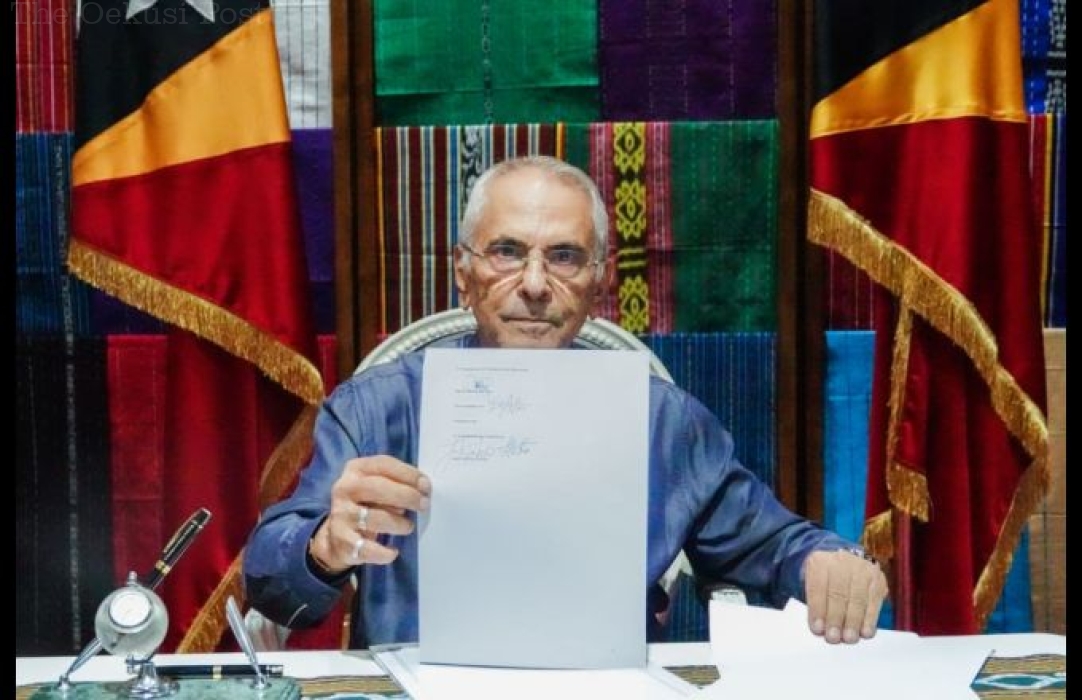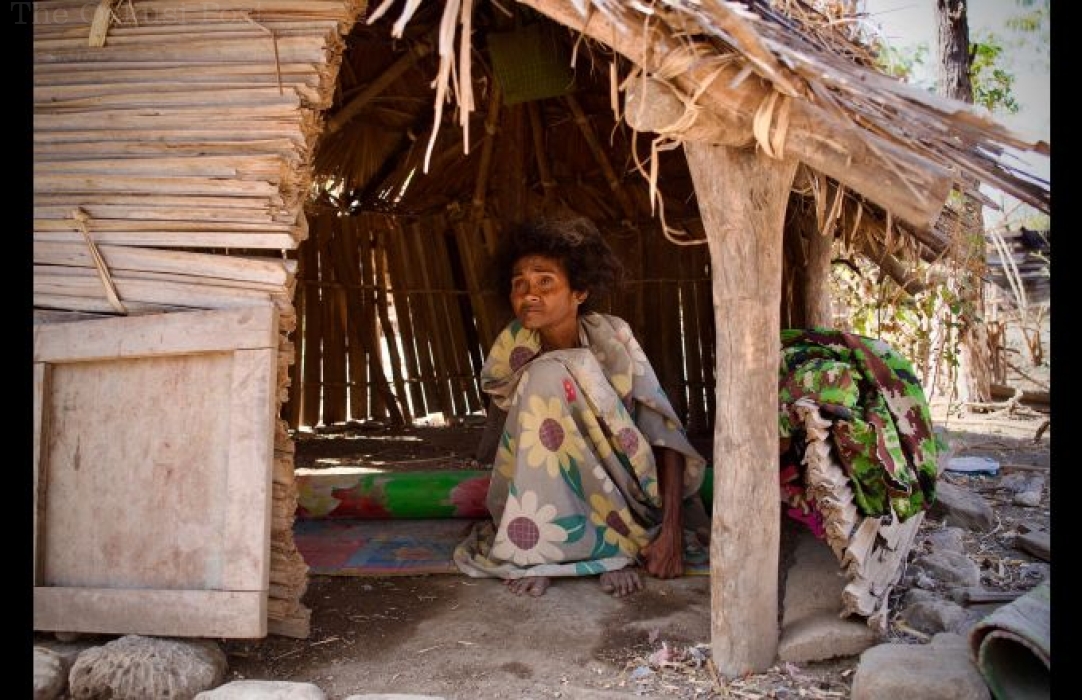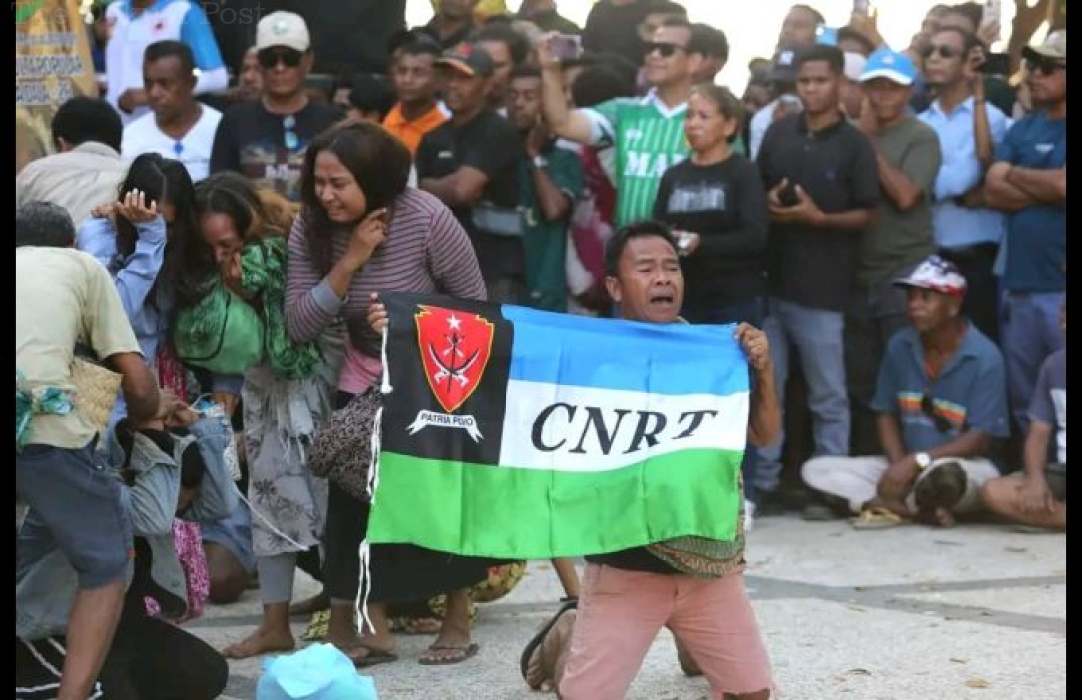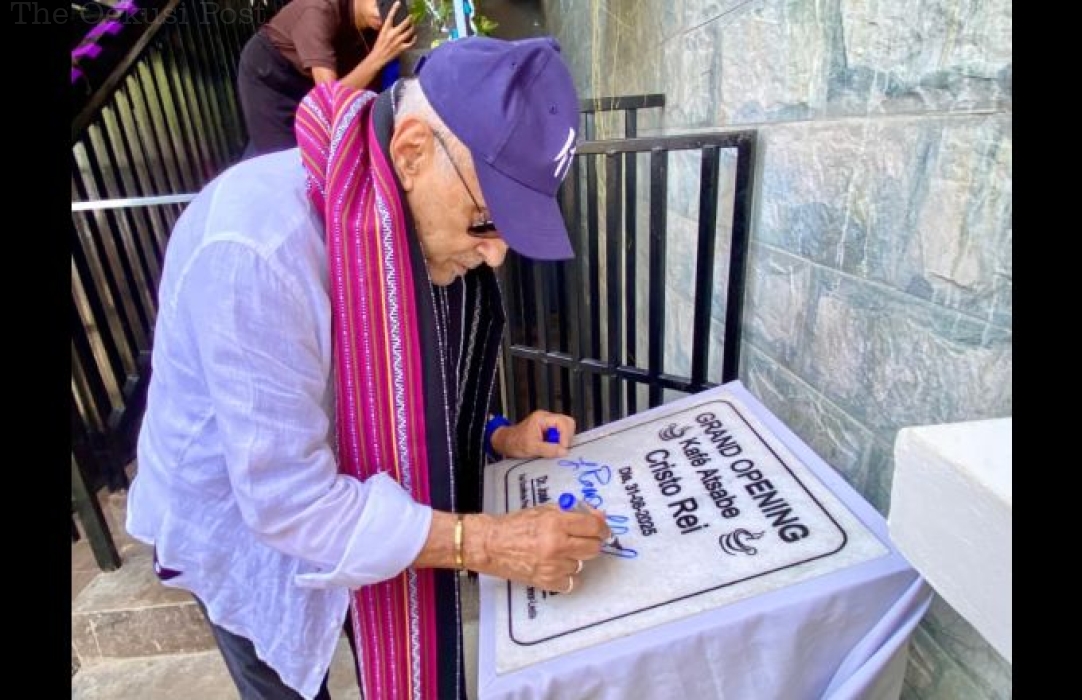AMBENO (TOP) — On the 17 of October 2018, all UN agencies called for a ban on virginity testing. In spite of this call, during the latter part of June 2020 dozens of under age girls in Oe-Kusi Ambeno were made victims of virginity testing.
Dozens of underage girls in Oe-Kusi Ambeno have experienced extraordinary and deadly trauma and psychological stress since 2020 until now.
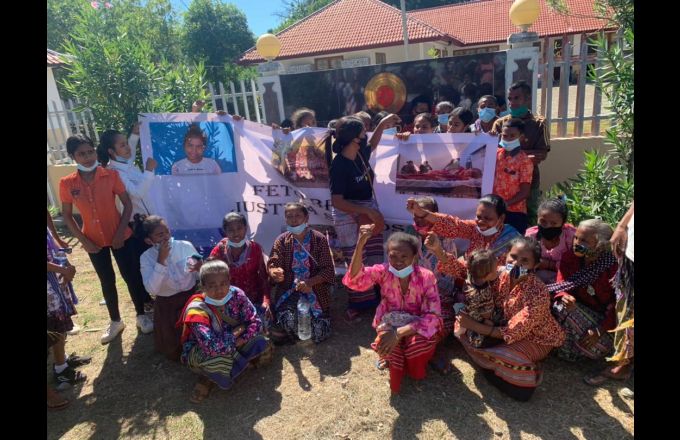
The Oe-Kusi Post has met and interviewed several victims of forced virginity tests that they had been detained in three different places for one week before a midwife and a general practitioner performed a forced virginity test.
They were detained and forcibly tested for virginity because they were suspected of having been raped and having sexual relations with a former Catholic priest from Pennsylvania, United States.
Nearly 20 underage girls have confessed that they have never been raped and have never had sexual relations with anyone but the authorities consisting of the prosecutor's office, police, several NGOs such as Pradet, ALfela and others have to detain these girls for one week and then perform a forced virginity test.
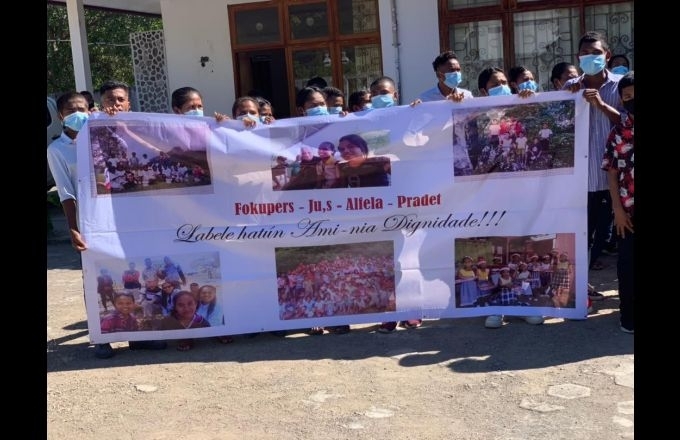
They are victims of a virginity test, and on Friday 2 July 2021 they have reported this case to the prosecutor's office Oe-Kusi Ambeno to seek justice.
A gynecological examination conducted under the belief that it determines whether a woman or girl has had vaginal intercourse — must end, says UN Human Rights, UN Women and the World Health Organization (WHO).
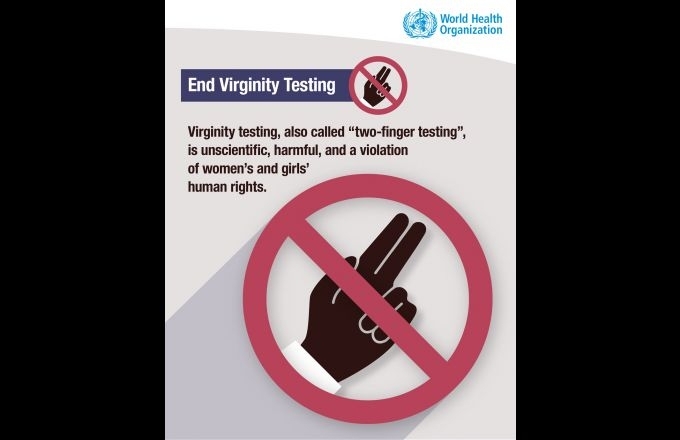
In a global call to eliminate violence against women and girls everywhere, this medically unnecessary, and often times painful, humiliating and traumatic practice must end.
Virginity testing is a long-standing tradition that has been documented in at least 20 countries spanning all regions of the world. Women and girls are subjected, and often forced, to undergo virginity testing for various reasons. These include requests from parents or potential partners to establish marriage eligibility or from employers for employment eligibility. It is mostly performed by doctors, police officers, or community leaders on women and girls in order to assess their virtue, honour or social value. In some regions, it is common practice for health professionals to perform virginity testing on victims of rape, supposedly to ascertain whether or not rape occurred.
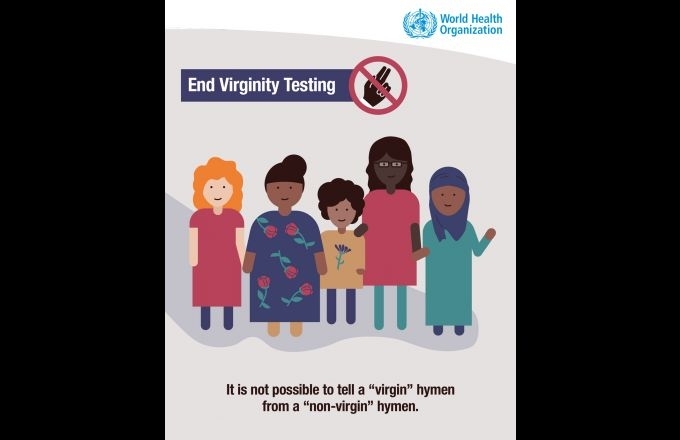
Virginity testing is often performed by inspecting the hymen for tears or its size of opening, and/or inserting fingers into the vagina (the “two-finger” test). Both techniques are practiced under the belief that the appearance of the female genitalia can indicate a girl’s or woman’s history of sexual activity. WHO states that there is no evidence that either method can prove whether a woman or girl has had vaginal intercourse or not.
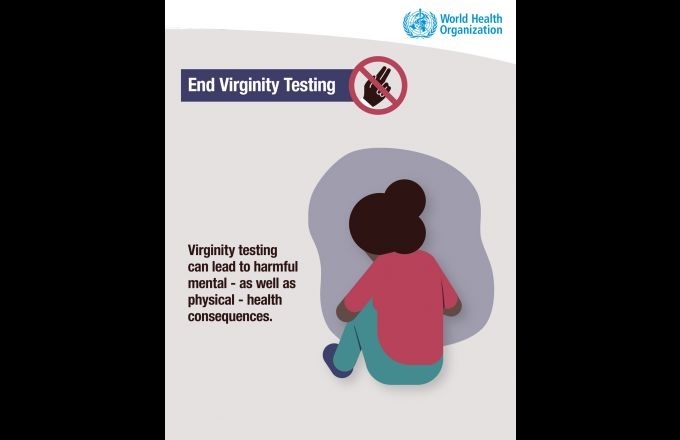
Emphasis on women’s “virginity” is a form of gender discrimination
The term “virginity” is not a medical or scientific term. Rather, the concept of “virginity” is a social, cultural and religious construct – one that reflects gender discrimination against women and girls.
The social expectation that girls and women should remain “virgins” (i.e. without having sexual intercourse) is based on stereotyped notions that female sexuality should be curtailed within marriage. This notion is harmful to women and girls globally.
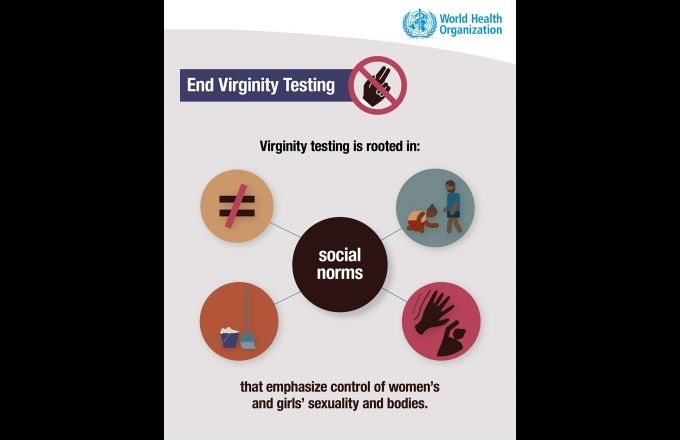
Health impacts of virginity testing
These examinations are not only a violation of women’s and girls’ human rights, but in cases of rape can cause additional pain and mimic the original act of sexual violence, leading to re-experience, re-traumatization and re-victimization. Many women suffer from adverse short- and long-term physical, psychological and social consequences of this practice. This includes anxiety, depression and post-traumatic stress. In extreme cases, women or girls may attempt suicide or be killed in the name of “honour”.
Performing this medically unnecessary and harmful test violates several human rights and ethical standards including the fundamental principle in medicine to ‘do no harm’. WHO recommends that this test should not be performed under any circumstances.
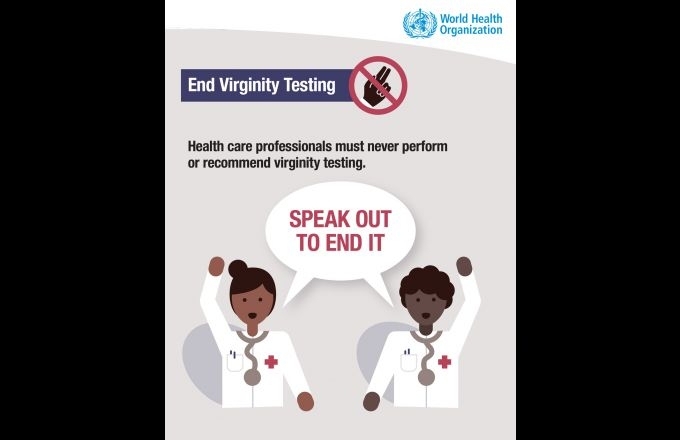
Governments, health professionals and communities must act to eliminate the practice
There is an urgent need to raise awareness among health professionals and communities of the detrimental effects of performing this test on women and girls, its lack of scientific validity, and the need to eliminate its use. Some governments have banned virginity testing and enacted laws to criminally punish those who perform the examination. Many professional health associations and human rights organizations have condemned this practice as unscientific and a violation of women’s and girls’ rights.
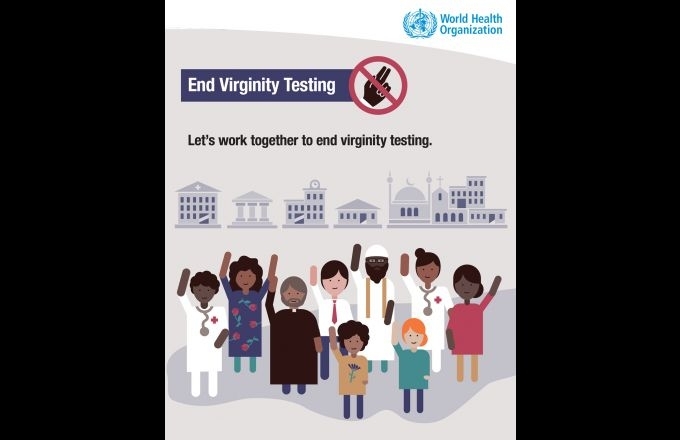
UN Human Rights, UN Women and WHO are committed to ending virginity testing and ensuring that the rights of all women and girls are upheld. The following are recommended strategies to eliminate virginity testing in settings where it occurs:
- Health professionals and their professional associations should be aware that virginity testing has no scientific merit and cannot determine past vaginal penetration. They should also know the health and human rights consequences of virginity testing, and never perform or support the practice.
- Governments should enact and enforce laws that ban virginity testing.
- Communities and all relevant stakeholders should implement awareness campaigns that challenge myths related to virginity and harmful gender norms that place emphasis on control of women’s and girls’ sexuality and bodies.






